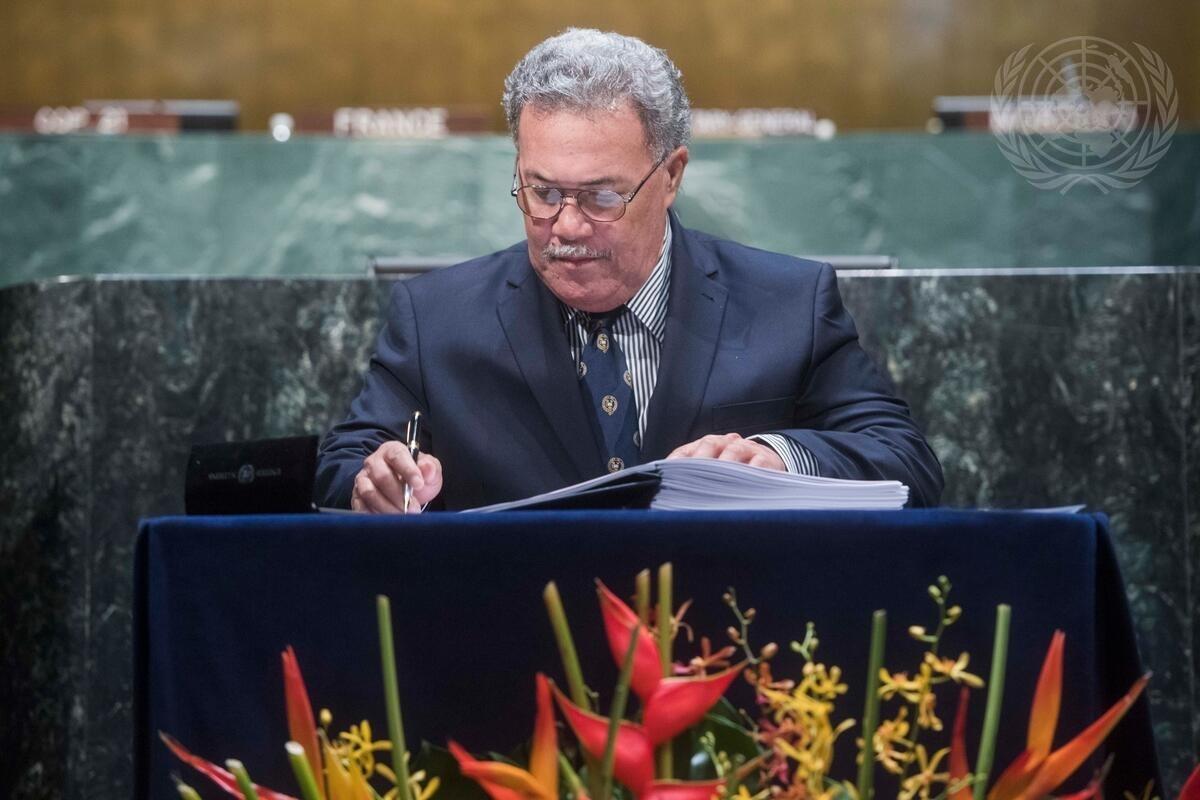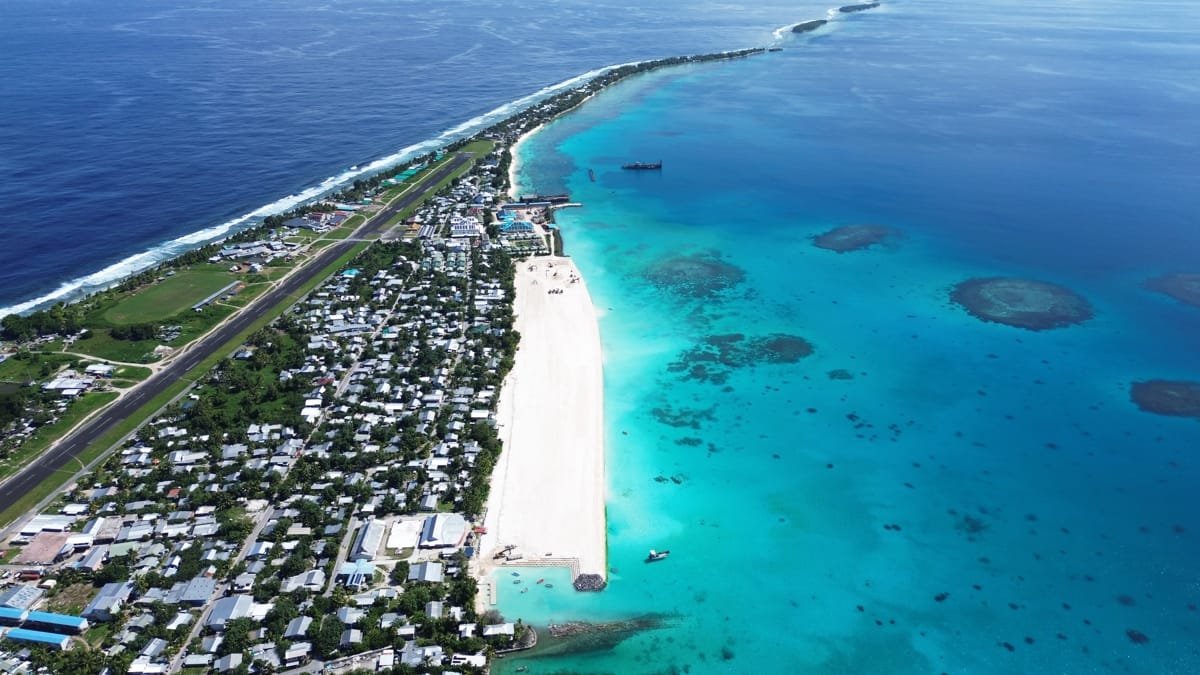In the world of global climate politics, one of the most often quoted people is Tuvalu’s former prime minister Enele Sosene Sopoaga.
You may now know him, but you will likely know some of his words.
Sopoaga has spearheaded many international climate initiatives and negotiations, becoming well recognised as a global leader in the climate change mitigation movement. Recently, he has become more widely known for his sharp tongue, often pointed at “Pacific Family” members Australia and New Zealand – forthright in criticism about their lacklustre fossil fuel mitigation policies.
But who is Sopoaga and how did he become such a figurehead in the global climate movement?
A career public servant and diplomat, including a stint as Tuvalu’s permanent representative to the United Nations, Sopoaga was elected to the Tuvalu parliament in 2010. He served as opposition leader until a vote of no confidence ousted the Tuvaluan government and Sopoaga became Prime Minister in 2013. In 2015, Sopoaga won at an election, his administration henceforth adopting a particular focus on how Tuvalu is vulnerable to global economic forces and climate change.
Partially due to these areas of focus, Sopoaga won again as prime minister in 2017, serving in the role until 2019. He remains a member of parliament, securing his seat in the recent 2024 elections.

Alongside his long and respected career in Tuvaluan politics, Sopoaga has been a relentless advocate for climate action globally. He was the main spokesperson for the Pacific Small Island Developing States (PSIDS) negotiating bloc at the 15th and 21st United Nations Climate Change Conference (COP15 and COP21). He led the Tuvalu delegation at COP16 and has since attended many other global climate negotiations, consistently pushing for global warming to remain within the Paris Agreement’s 1.5 degrees.
Sopoaga has recently continued his sharp advocacy as a vocal member of the Pacific Elders’ Voice group. Pacific Elders’ Voice is an independent group of senior politicians and prominent leaders from the region, its members also including figures such as former Pacific Island Secretary Dame Meg Taylor. The group aims to provide guidance and constructive policy advice and input to both Pacific governments, governmental organisations and advocacy groups.
Sopoaga’s willingness to tell off his Pacific neighbours is becoming not only well known but expected and widely respected.
The Pacific Elders’ Voice is particularly well known for speaking out on climate change inaction. One particularly notable incident was a newspaper advertisement the group organised during a 2023 visit to Fiji by Australia’s Climate Change Minister Chris Bowen. Bowen came to ask Pacific leaders to join Australia’s bid to host COP31 for the region. Sceptical of this, the newspaper advert read:
“[Australia’s] response to our natural disasters, sea level rise, heat, food insecurity, has been to pursue more gas and coal projects, the very thing driving the climate crisis … Australia has ignored our pleas for years. Why then must Pacific leaders be in such a hurry to show support for COP31?”
As part of this outspoken organisation, Sopoaga has continued (if not accelerated) his rhetoric and climate advocacy. At a climate integrity summit in Canberra this year, he “scolded” the Australian government, saying:
“While Australia pretends to be good friends of the Pacific, it continues to export coal and gas. Australia is dealing with our demise … the fossil fuel industry has total control over the nation’s economic and foreign policy.”
He continued by saying Australia was effectively signing a “death warrant” for Tuvalu and accused the 2023 Australia-Tuvalu Falepili Union Treaty of undermining his nation’s sovereignty.
Sopoaga has had similar words for Aotearoa, New Zealand’s government calling the country’s intention to restart oil and gas exploration “daft”, “naïve” and “completely stupid”.
“We are working as a global team … [we cannot] go with the national interests of countries, we have to discipline ourselves so that we don't break up and claim that we are doing what the Paris Agreement and Kyoto Protocol are telling us.”
Sopoaga’s willingness to tell off his Pacific neighbours is becoming not only well known but expected and widely respected in the climate movement. His tenacity is building momentum and it is likely Sopoaga will remain a champion of the global climate movement, continuing the attempt to hold high-emissions nations to account.



